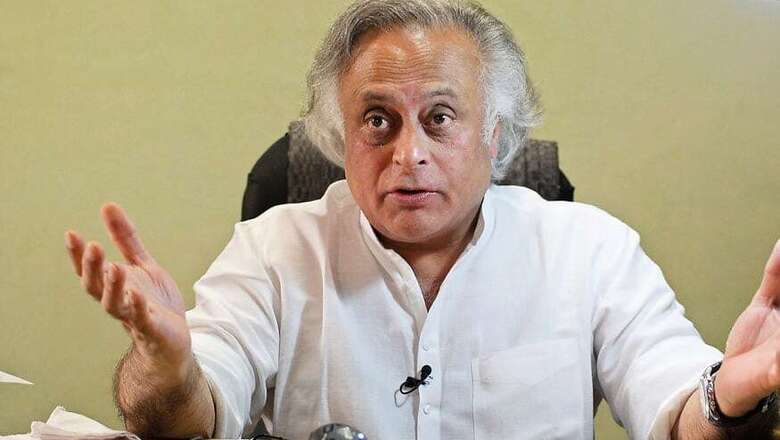
views
New Delhi: The ministers of environment since 2014 have been "ministers of approval", said senior Congress leader Jairam Ramesh, who held the portfolio during the UPA rule, and argued that the job of the minister was to protect the environment and "not necessarily clear proposals".
Speaking at the launch of book "On Jim Corbett's Trail: And Other tales from the Jungle", written by country's foremost conservationist AJT Johnsingh, Ramesh added that if the present minister of environment's "metric of success is based on the number of approvals he gave, then he is not doing his job".
"Is there an environment minister? I mean, from 2014, the ministers of environment have been ministers of approval. And if the minister of environment is going to give a press conference saying that I have cleared thousands and thousands of proposals... then he is not doing his job," the former Union minister said.
Talking about the time when he was the minister of environment, he said that he always judged himself by the "number of questions asked, number of rejections, the number of impediments he put", and not by the approvals he gave.
Ramesh was the minister of environment and forests from May 2009 to July 2011 in the Congress-led government.
"It is a tough call and I think it is important to pick your battles if you want to win the larger war. I was minister of environment for 26 months, if I had not taken the decisions that I took I would have lasted 60 months," said Ramesh, adding that during his tenure more often that not his choice was in favour of conservation and protection only.
Underlining the battles, those he picked during his stint as the minister, he said one of the most celebrated one that he can remember was the protection of "Tadoba Andhari-Tiger Reserve (TATR) which was threatened by the proposal of huge coal mine".
The Tadoba national park is Maharashtra's oldest and biggest national park.
"The coal mine was proposed for good whole decade, but then I went there and saw for myself the devastation that it will cause and put a stop to it... well, now it is back on the agenda.
"Then there were instances in Jharkhand, Chhattisgarh and Madhya Pradesh. Numerous examples like this across the country. There were very few instance when I actually took a decision in favour of the project proponents," he said.
Further, he claimed that very frequently the proponents for projects were governments themselves, centre or state, and not the private sector.
"They (governments) were the worst culprits in this regard," he said.
He, however, did admit that there were instances when he had to make different choices.
"The fact is that you have to navigate both sides. There is a very large community of people who think that conservation is good in theory but when it comes to practice well we can postpone it for a while if it means more investment, more jobs, more industry.
"It is a tough call and you have to see for yourself what the issues are, what are the short term implication, and also what are the long term implications whether it is national highways, railways," he said.
The 246-page book, published by Natraj publishers, is the author's narration of his journey retracing Jim Corbett's tracks, which other than providing conversationist's experiences and observations, also gives the readers a sense of the ecological change that is occurring in Indian forests and waterways.




















Comments
0 comment